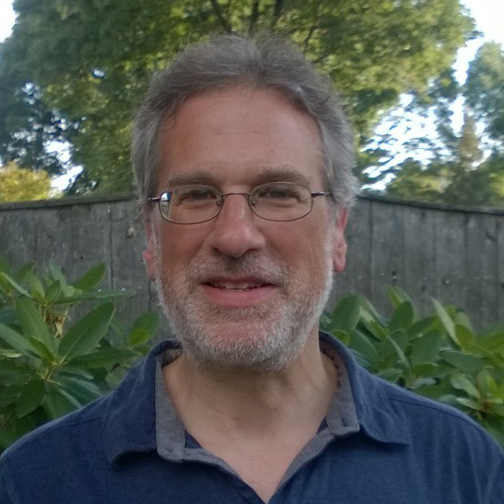Advertisement
Dispatch From A Post-Carbon World: Planting The Seeds For A More Resilient Future
![Mark Dwortzan: "[Transition Towns] empower residents to produce and consume more of life’s essentials where they live, all while minimizing their reliance on fossil fuels." Pictured: The Egleston Community Orchard in Jamaica Plain, Mass., was once a vacant lot. (chipmunk_1/Flickr)](https://wordpress.wbur.org/wp-content/uploads/2014/07/0723_transition-town-Cog-1000x547.jpg)
Whenever I buy grapes imported from Chile, fill my gas tank with fuel sourced in the Persian Gulf, or select underwear made in Thailand at a department store headquartered in Minneapolis, I can’t help but wonder how much longer we can all go on like this. That our survival hinges on the economic vitality of countless far-flung suppliers of food, energy, clothing and other essentials gives me pause. So does our reliance on cheap oil, natural gas and coal to deliver that stuff to our doorsteps and keep us warm, cool or plugged-in once it gets there. Not to mention the equilibrium of our planet’s climate, now threatened by the relentless combustion of all those fossil fuels. One of my greatest fears is that, someday, our remote-controlled, global commodity delivery system will collapse, and we’ll all have to scramble to meet our basic needs.
One of my greatest fears is that, someday, our remote-controlled, global commodity delivery system will collapse, and we’ll all have to scramble to meet our basic needs.
It turns out that I’m not alone. United by concerns about Peak Oil, a warming planet and global economic instability, some 27 groups throughout New England — part of 151 groups in the U. S. and 477 worldwide that have formed since 2006 — are taking collective action to transform their communities into walkable, locally-resilient “Transition Towns.” Such efforts empower residents to produce and consume more of life’s essentials where they live, all while minimizing their reliance on fossil fuels. By shifting their hometowns from a global to a local economy through urban farming, community-owned solar power stations, local currencies and other grassroots enterprises, these groups are advancing an alternative, post-carbon world that’s more ecologically sustainable, economically robust and socially cohesive than the one we currently inhabit.
One such initiative, the Jamaica Plain New Economy Transition (JP NET), the only one of its kind in Boston, has been in operation for three years. Among other things, JP NET volunteers have turned a formerly vacant, crime-ridden lot into Egleston Community Orchard, a garden space where apple trees, raspberries, chard and other crops are grown sustainability. The Egleston Farmers’ Market, another JP NET-backed project, has brought hundreds of people of different racial, ethnic and economic backgrounds together to buy local produce, listen to live music, and meet their neighbors.
The majority of Transition Towns, in fact, have expanded or repurposed green space for local food production. In Healdsburg, Calif., volunteers have converted residential lawns into vegetable gardens — replacing sod with raised beds of everything from squash to kale. Other groups have generated their own renewable energy via rooftop and community photovoltaic and wind turbine systems. A Transition initiative in the South London district of Brixton spearheaded the city’s first community-owned solar power station atop a public housing complex, netting enough electricity last year to power 10 homes. Such efforts are reducing not only residents’ carbon footprints, but also the amount of toxins that end up in their air, water and soil.
On the economic front, some Transition Towns have introduced alternative currencies that drive consumers to local businesses. In 2012, JP NET distributed the Boston Bean, an alternative five-dollar bill honored by various JP merchants during the winter holiday season. Transition San Francisco introduced Bay Bucks in 2013. According to economist Michael Shuman, every dollar spent locally produces up to four times the economic benefit — in terms of jobs, income and tax revenue — than a dollar spent at a chain store.
“Time Banking,” another common form of local currency circulating in Transition Towns, enables participating residents to earn a “Time Dollar” for every hour of services they provide. Members of Transition Sarasota’s Common Wealth Time Bank exchange Time Dollars for services like childcare and home repairs.
A newly found inter-connectedness may be one of the greatest benefits of going local and weaning ourselves off of fossil fuels.
Transition initiatives are not only shoring up financial capital, but social capital, as well. Groups from Liverpool to Palo Alto have hosted “Transition Cafes,” informal gatherings to discuss such topics as renewable energy, transportation and climate change. Others have incorporated community-building into more hands-on activities. Australia's Transition Newcastle organized a “Transition Streets Challenge to encourage neighbors to work together to use less water and energy and generate less waste.
A newly found inter-connectedness may be one of the greatest benefits of going local and weaning ourselves off of fossil fuels. In his book “Deep Economy,” Bill McKibben writes of farmers’ markets, “The market begins to build a different reality, one that uses less oil and is therefore less vulnerable to the end of cheap energy. But, more important, the new reality responds to all the parts of who we are, including the parts that crave connection.”
One lawn-to-garden conversion at a time, one local currency transaction at a time, one farmers’ market conversation at a time, Transition Town residents are laying the foundations for a more resilient, post-carbon world. Collectively, they give me hope that, even if the global economy doesn’t hold up in the long run, we’ll be just fine.
Related:
